A new hot spring area will open to the public on Dec. 8 following a six-month delay caused by the COVID-19 pandemic. Located within the extremely popular Cingshuei Geothermal Park, managed by the Yilan County Government, the hot spring will be marketed as “Cingshuei Springs.” During the first week of operation, the hot spring baths will open its doors to 120 people per day to bathe free of charge.
Cingshuei Geothermal Park is a natural alkaline hot spring area and the park already boasts a hot spring pool for cooking food in addition to foot baths. Yilan County Government invested NT$77 million to construct a new hot spring area, comprising a scenic entrance area, customer service area and eight hot spring pools. The pools are all public pools, four female and four male, which each accommodate up to 100 bathers.
At the beginning of the year, the operating licence for Cingshuei Springs was granted to Jiaosi’s No.9 Hotel and original plan was to begin operating by mid-May. However, after a serious outbreak of COVID-19 swept across the nation, at the last minute the plug was pulled on hot springs’ grand opening. However, once the virus outbreak had begun to subside, Dec. 8 was settled upon as the date for Cingshuei Springs’ opening ceremony and visitors will be able to begin using the bathing facilities on the afternoon of the same day.
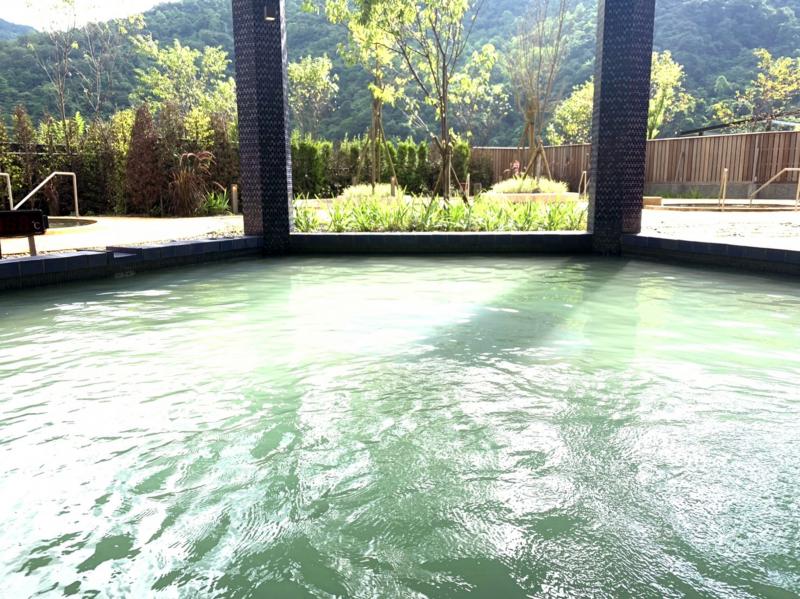
Photo courtesy of No.9 Hotel 照片:業者提供
During the first week of trial operation, visitors will be limited to 120 persons per day. Thereafter, admission into the Cingshuei Springs area will be free of charge, excepting a car parking fee on entry into Cingshuei Geothermal Park. An adult ticket for the baths will cost NT$80.
(Liberty Times, translated by Edward Jones)
宜蘭縣政府經營管理風景區人氣王清水地熱公園的新設泡湯區,因疫情影響,啟用日期延遲半年。最近疫情趨緩,敲定十二月八日開幕,以「清水泉」之名行銷,開幕的第一週,每天開放一百二十人免費泡湯。
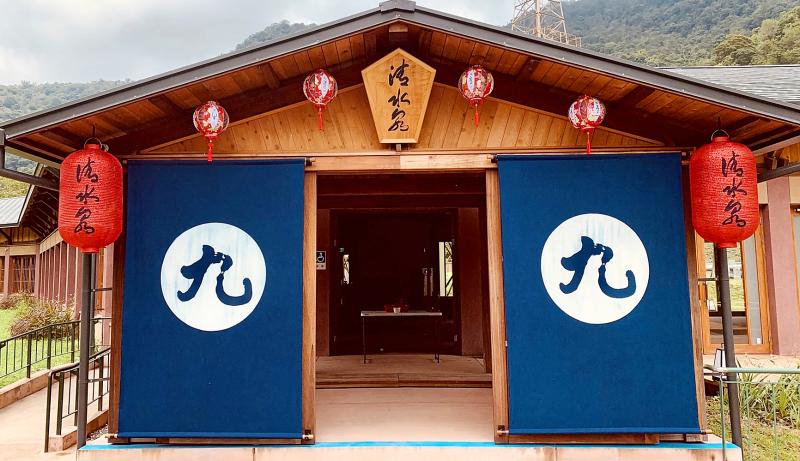
Photo courtesy of No.9 Hotel 照片:業者提供
清水地熱公園泉質是鹼性泉,現有溫泉煮食池及泡腳池,宜蘭縣政府投入七千七百萬元新設泡湯區,增建入口景觀區、公共服務區、八座泡湯池。泡湯池屬於大眾池,男、女湯各四座,可同時容納一百人。
泡湯區今年初由「礁溪九號」公司取得經營權,原訂五月中旬營運,因碰上本土疫情爆發臨時喊停,由於疫情趨緩,決定在十二月八日上午舉辦開幕式,下午開放遊客進場泡湯。
開幕的第一週,每天招待一百二十名遊客體驗;清水地熱公園只收停車費免門票,若要泡湯另外付費,全票八十元。
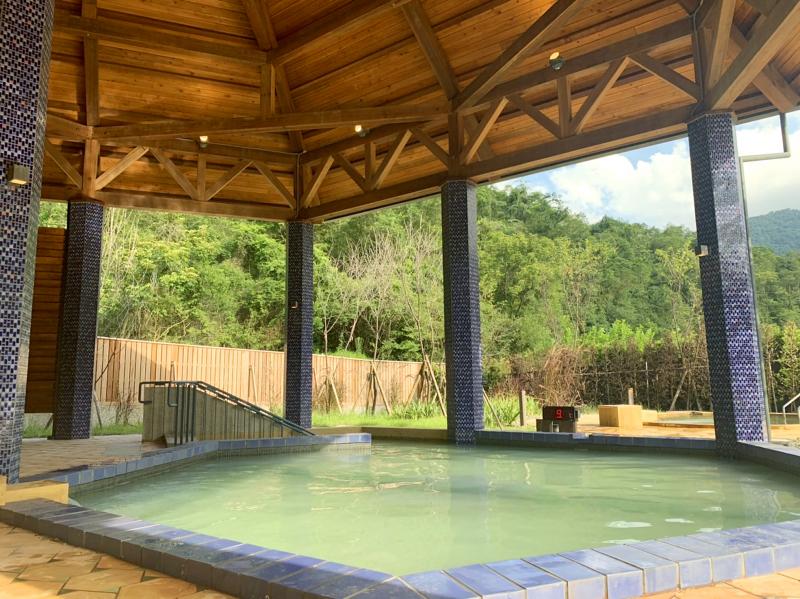
Photo courtesy of No.9 Hotel 照片:業者提供
(自由時報江志雄)
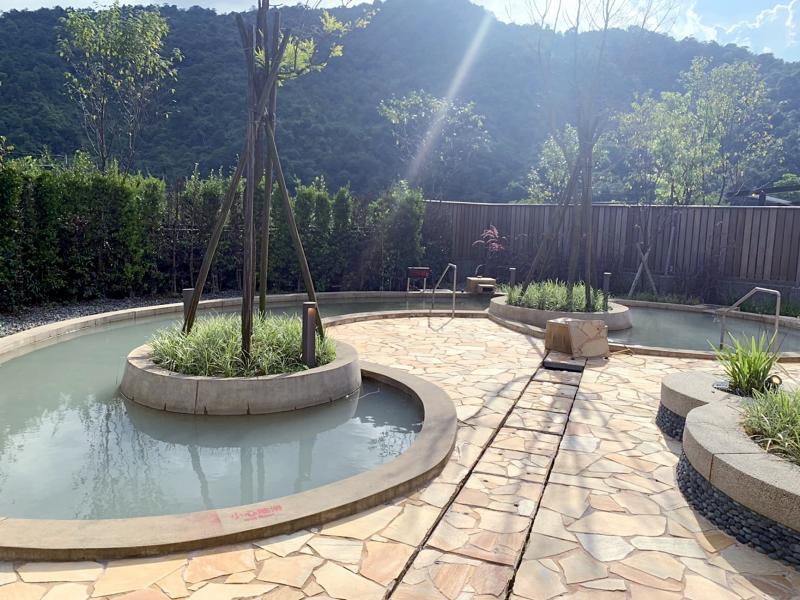
Photo courtesy of No.9 Hotel 照片:業者提供

詞法—不定詞的誤用 1. 我得記住星期五要把報告寫好。 ˇ I must remember to finish my report by Friday. χ I must remember finishing my report by Friday. 註︰remember 後面跟動名詞或不定詞表示兩種不同的概念,與 forget 相類似。 試比較下列句子: I remember meeting him somewhere.(我記得曾經在某處見過他。) I must remember to meet him at the station at six this evening. (我必須記住今晚六點得去車站接他。) He remembered turning off the light when he left the room. (他記得離開房間時曾先把燈熄了。) Remember to turn off the light when you leave the room. (記住離開房間時要把燈關了。) 2. 他提醒她做好她份內的事。 ˇ He reminded her to do her job. χ He reminded her of doing her job. 註︰remind ... of ... 後面跟動名詞,表示「使人想起做過某事」。若是「提醒某人應做某事」,應用 remind ... to do ...。試比較下列句子: He reminded me of my attending the lecture last Friday. (他讓我想起我上星期五去聽過那次演講。) He

★ Bilingual Story is a fictionalized account. 雙語故事部分內容純屬虛構。 “Any New Year’s resolutions?” he asked. Lena put her coffee down. “Yeah,” she said. “To get in shape.... round is a shape, right?” Mark chuckled. “I support this. Fully achievable. Low risk.” “Thanks,” she smiled and lovingly rubbed her round belly. “I like a resolution I can’t fail.” “Funny thing is, I was thinking about getting round too.” Lena nodded her head in approval, “You could put some meat on those skinny bones of yours.” Mark shook his head, “Not that kind of round. Wheel-of-Life round.” She raised an eyebrow.
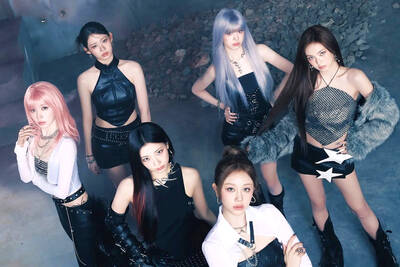
A: Apart from Taiwan’s A-mei, Mayday and Jolin Tsai, there are many foreign singers coming to Taiwan early this year. B: The South Korean girl group Babymonster are playing two shows at Taipei Arena starting from tonight. Who else is coming to Taiwan? A: Other artists include Australian band Air Supply, K-pop superstar Rain, boy group Super Junior, TXT, US singers Giveon and Josh Groban, and Irish boy group Westlife. B: Air Supply was the first foreign band to come to Taiwan in 1983, and they’re probably the most frequently visiting group too. A: As the year is beginning
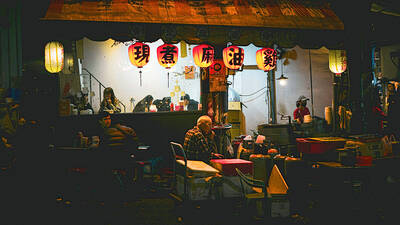
對話 Dialogue 清清:最近天氣越來越冷,感覺很容易感冒,要不要一起去吃薑母鴨或是羊肉爐? Qīngqing: Zuìjìn tiānqì yuèláiyuè lěng, gǎnjué hěn róngyì gǎnmào, yào bú yào yìqǐ qù chī jiāngmǔyā huòshì yángròulú? 華華:最近我覺得有點累,想吃薑母鴨,可是又怕一下子吃太補會上火。 Huáhua: Zuìjìn wǒ juéde yǒudiǎn lèi, xiǎng chī jiāngmǔyā, kěshì yòu pà yíxiàzi chī tài bǔ huì shànghuǒ. 清清:那我們去喝香菇雞湯吧,不太容易上火,喝了也會很暖和。 Qīngqing: Nà wǒmen qù hē xiānggū jītāng ba, bú tài róngyì shànghuǒ, hē le yě huì hěn nuǎnhuo. 華華:聽起來不錯!你們家平常冬天都吃什麼進補? Huáhua: Tīng qǐlái búcuò! Nǐmen jiā píngcháng dōngtiān dōu chī shénme jìnbǔ? 清清:我家都煮麻油雞,吃完整個人手腳都會熱起來。我也很久沒喝香菇雞湯了,正好可以去打打牙祭。 Qīngqing: Wǒ jiā dōu zhǔ máyóujī, chī wán zhěnggè rén shǒujiǎo dōu huì rè qǐlái. Wǒ yě hěn jiǔ méi hē xiānggū jītāng le, zhènghǎo kěyǐ qù dǎ dǎ yájì. 華華:可是我最近在減肥,會不會吃得太補,肉又長回來了? Huáhua: Kěshì wǒ zuìjìn zài jiǎnféi, huì bú